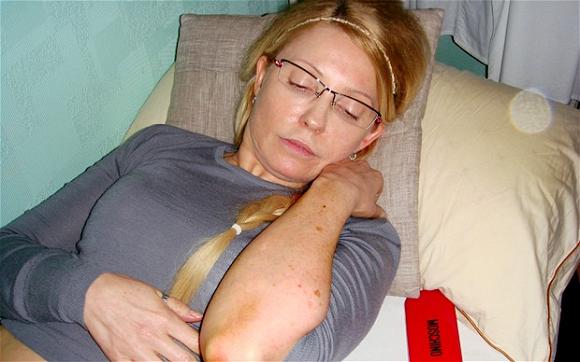Beginning in May 2010, a number of criminal cases were opened against former Prime Minister Yulia Tymoshenko. On 11 October 2011 a court found her guilty of abuse of power, and sentenced her to seven years in jail.
The case has been the focus of strong reactions by the EU, the Council of Europe, several European governments, and the US; the EU even conditioning further progress on negotiations on an Association Agreement with Ukraine on legal amendments resulting in the release of Tymoshenko.
A complaint by Tymoshenko is pending before the European Court of Human Rights, “alleging that her criminal prosecution and detention were politically motivated, that there has been no judicial review of the lawfulness of her pre-trial detention, and that her detention conditions are inadequate, with no medical care provided for her health problems”.
– The Tymoshenko case shows how polarized Ukrainian politics is, Engesland underlines. The current regime under President Viktor Yanukovich seems ready to manipulate the law and the judiciary in order to get rid of political opponents. This is alarming ahead of parliamentary elections, scheduled to take place on 28 October.
In a recent development, Tymoshenko claimed that she had been beaten by prison guards in the Kachanivska penal colony in Kharkiv during a forced move to hospital on Friday 20 April. Nina Karpachyova, The Parliament’s human rights ombudsperson, said that she confirmed that Tymoshenko was bruised.
Both Catherine Ashton, the EU High Representative for Foreign Affairs and Security Policy and Štefan Füle, the EU Enlargement Commissioner reacted strongly. According to the Commissioner, “it was crucial for Ukraine to demonstrate a solid commitment to the rule of law and democratic values in order to facilitate further steps towards the signature and ratification of the Association Agreement.”
Yanukovych and Tymoshenko are long-time political adversaries, dating back to the orange revolution of 2004 when Tymoshenko were one of the leaders of popular protests against fraudulent elections, resulting in Yanukovych’ having to give up becoming Ukraine’s President. She was twice Prime Minister but lost the 2010 presidential vote to Yanukovich, who thereby succeeded in a full political comeback.
– Ukraine is soon to co-host the European football championship together with Poland. It would be sad if this important sports event is overshadowed by news about the countries’ severe human rights problems. The only way the regime can avoid that is to start in earnest reforms aiming at solving those problems; including strengthening rule of law and the independence of the courts, and improving prison conditions, concludes Engesland.
